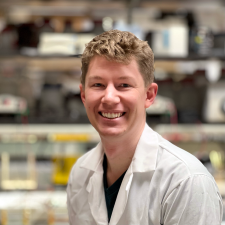Age is the greatest risk factor for developing cancer due to the continuous and life-long accumulation of DNA mutations. Although we have identified causes of childhood cancer, including the inheritance of cancer-predisposing genes, other major contributing factors have not yet been identified. Blood cancer is the most common cancer in children and sequencing data indicate that the first genetic mutations occur during fetal development. Dr. Wagenblast will use human blood stem cells and CRISPR/Cas9-mediated genome engineering to model leukemia evolution and identify biological processes that specifically contribute towards cancer development in children. The goal is to leverage this understanding to identify novel therapeutic targets against childhood blood cancer.


About 70% of pediatric leukemias and 10% of adult leukemias are caused by a genetic disruption in which the mixed lineage leukemia (MLL) 1 gene breaks off and attaches to a different chromosome. This event, known as a chromosomal translocation, gives rise to a distinct subset of leukemias called MLL-rearranged acute myeloid and lymphoblastic leukemias (AML or ALL). Novel treatments for these cancers represent a major unmet medical need. However, the development of therapeutics is hampered by a lack of basic understanding of how the MLL translocations disrupt the function of affected cancer cells. Dr. Farnung will use biophysical and structural biology approaches to visualize how MLL translocations function at the atomic level and influence the important process of gene transcription. His work will elucidate the precise molecular mechanisms that drive acute leukemias and provide a platform for the development of novel therapeutic strategies against these cancers.
